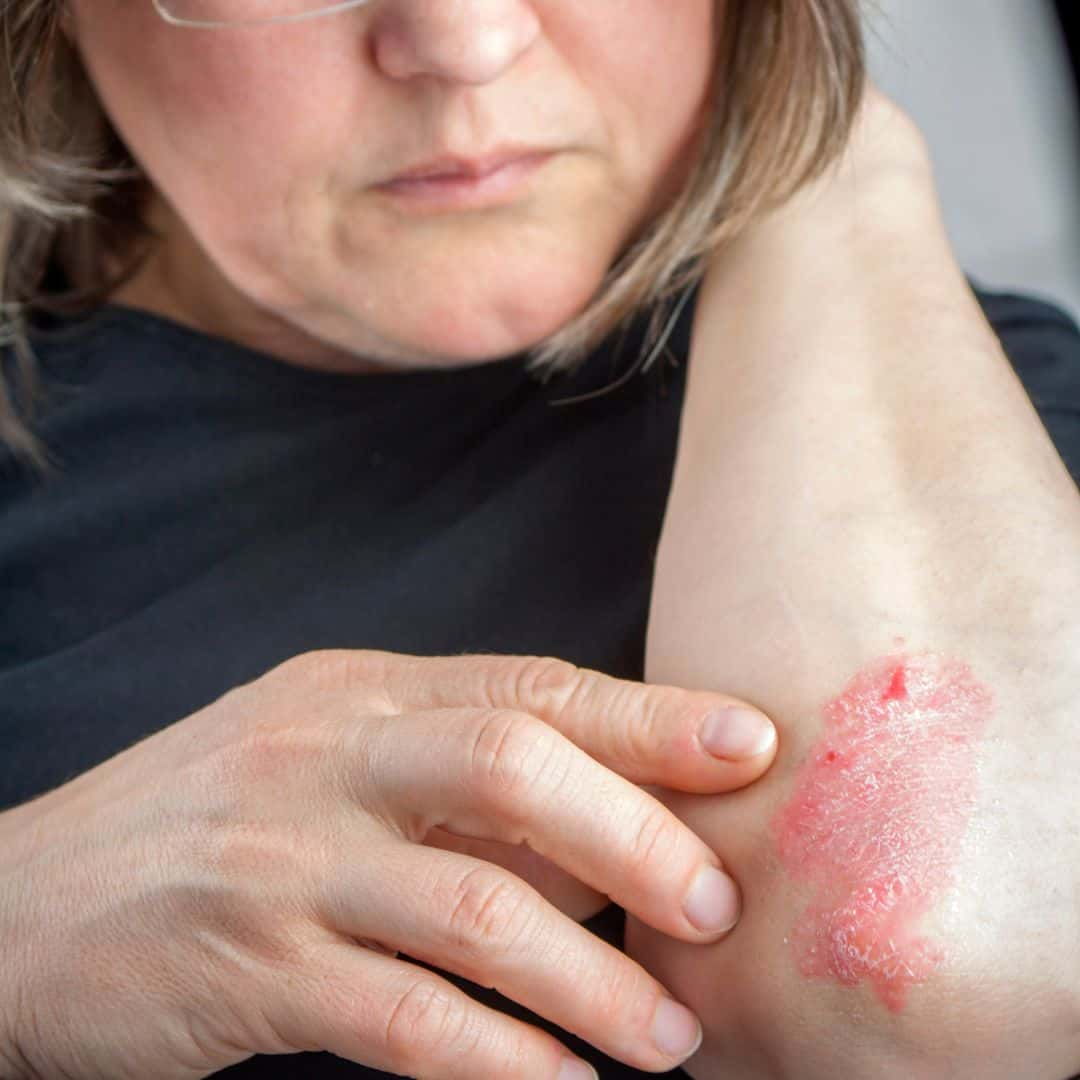Want to save 25%? Check out our Subscriptions!
Psoriasis is more than just a skin condition; it’s a chronic autoimmune disease affecting millions worldwide.Despite its prevalence, many people misunderstand psoriasis, leading to stigma and isolation for those who live with it. As Psoriasis Awareness Month approaches, we must educate ourselves and others about this condition, dispel myths, and support ongoing research efforts.

Psoriasis is characterized by red, itchy, and scaly patches on the skin, often found on the elbows, knees, scalp, and lower back. These patches result from accelerated skin cell production, where new skin cells grow too quickly and accumulate on the surface. This overproduction is triggered by an immune system that mistakenly attacks healthy skin cells, making it an autoimmune skin condition.
There are several types of psoriasis, including plaque psoriasis (the most common form), guttate psoriasis, inverse psoriasis, pustular psoriasis, and erythrodermic psoriasis. Each type has unique symptoms and challenges, requiring proper management and care.
Living with psoriasis goes beyond the physical symptoms—many individuals with psoriasis experience emotional and psychological challenges due to the visible nature of the condition. Misconceptions and lack of awareness can lead to stigma and discrimination, affecting social interactions, employment, and overall quality of life.
Research indicates that people with psoriasis are at a higher risk for developing other health issues, such as psoriatic arthritis, cardiovascular disease, and mental health conditions like depression and anxiety. Raising awareness and supporting those affected by this chronic skin condition is even more critical.

Psoriasis Awareness Month, observed every August, plays a vital role in educating the public about psoriasis. Increased awareness helps to:
There are numerous ways to get involved during Psoriasis Awareness Month. Here are a few ideas:

Managing psoriasis involves a combination of medical treatments and self-care practices. Topical treatments, such as creams and ointments, can help alleviate symptoms and improve the appearance of the skin. It’s essential to find products specifically formulated for sensitive and psoriasis-prone skin.
For those seeking effective management of psoriasis symptoms, our specially formulated psoriasis relief cream offers a reliable solution. Experience the relief you deserve with our cream.
Psoriasis Awareness Month is an opportunity for the community to come together to support those living with psoriasis, raise awareness, and promote psoriasis research efforts. By educating ourselves and others, we can reduce stigma, improve the quality of life for individuals with psoriasis, and move closer to finding a cure. Let’s make this August a month of understanding, empathy, and action.